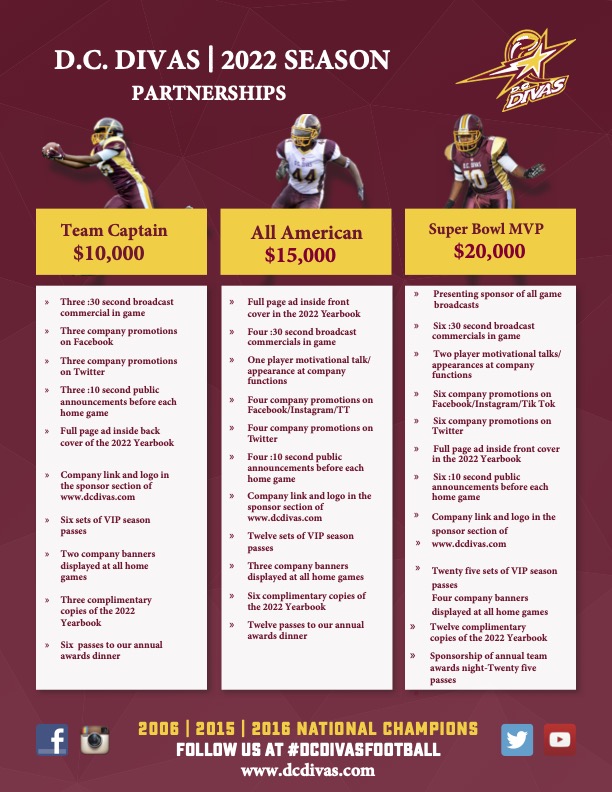|
Coach Alison Fischer Q&A
Why did you decide to get into coaching after your playing career was over?
In 2011, I knew it was time for me to retire from playing. I felt like I would be more beneficial to the team off the field than on the field at that point. I always thought when I was a player that I would end up doing some kind of coaching. I was always fascinated by the X’s and O’s and the mental part of the game, so I felt like I would end up in coaching someday. But I didn’t know that my coaching career would start so soon after I retired.
Right after I retired, there was an opening for the Divas’ head coaching job. I had some folks encouraging me, so I threw my hat in the ring and interviewed for the job. I was very familiar with the team and the history of the Divas organization, and I really wanted to see this organization get back to where it had been. I was fortunate to be hired as the head coach of the D.C. Divas in 2012, and I am honored and humbled to continue to serve in that role today.
What has been your biggest adjustment from playing women’s football to coaching it?
There were so many…many that you just don’t anticipate or expect if you haven’t done it before. When I was hired in 2012, I had played alongside almost all of the players, so it was a bit of a challenge to draw that line between coach and former teammate. Assembling my first coaching staff was another challenge, just in trying to find coaches who meshed well and worked well together. Finally, I always thought the time commitment was a lot for a player, but as a coach, it was even more! That was certainly eye-opening.
How has your background as a women’s football player helped you as a coach?
I think there are important differences between men’s and women’s football. Many times, coaches who have only coached men don’t see those differences right away, and it takes them some time to adjust to it. I think because I have played and have seen what works and what doesn’t work as well in the women’s game, I can speed up that process a little bit and provide them with some guidance in that transition.
What is your overall coaching philosophy? How would you like your players to play the game?
Philosophically, I’m kind of old-school…I believe that hard work and effort leads to success. I’m big on hustle. These are the values I try to preach. I believe if you work hard in practice, it will translate to the game. If you’re prepared and you put in your best effort, good things are going to happen. Finally, I want to coach players who are mentally tough. I think that’s a big part of success in this game, too. |


